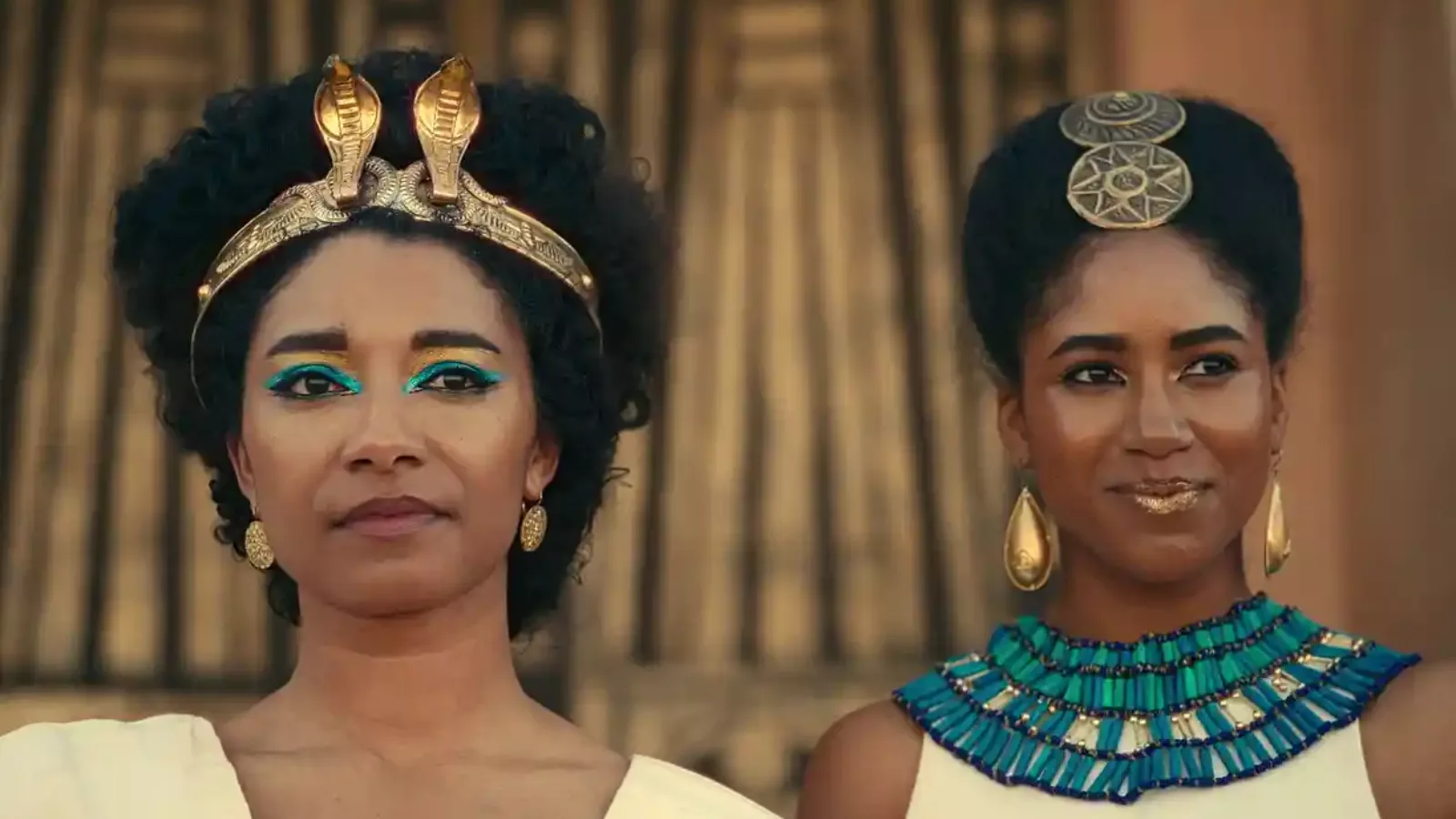The looney left’s continual attack on reality continues as Netflix’s new “historical” drama presents the Egyptian Queen Cleopatra as a Black woman. The portrayal is controversial, to say the least, and deliberately ahistorical. The Egyptian Ministry of Antiquities even weighed in on the issue, citing historical accounts, bas-reliefs, and statues of Cleopatra from the period to argue against Netflix’s woke race-swapped portrayal of their country’s iconic historical figure. Egyptian history expert Mostafa Waziri called it “a falsification of Egyptian history.” Of course, Hollywood and the left would have you believe the casting is inconsequential because it’s a work of fiction anyway. Still, releasing such a media product to a mass audience sets a dangerous precedent for how far the media is willing to go to retcon and alter history in the public eye for the sake of their agenda.
THE GUARDIAN: Cleopatra was light-skinned, Egypt tells Netflix in row over drama
By Harriet Sherwood; April 28, 2023
Casting of black actor in upcoming docudrama has angered groups in Egypt who say it is ‘a falsification of Egyptian history’
She was Egypt’s last Pharaoh, a legendary leader who according to popular belief ended her life by allowing a deadly cobra to bite her breast.
But more than 2,000 years after her death, the woman who had love affairs with Julius Caesar and Mark Antony has ignited a modern-day controversy over race and representation.
In Queen Cleopatra, a new four-part drama-documentary made by Netflix, the title role is played by Adele James, an actor of mixed heritage – a move that has enraged Egyptian experts who insist the pharaonic leader had “white skin and Hellenistic characteristics”.
This week, the Egyptian antiquities ministry published a lengthy statement that included opinions from experts that, it said, agree on Cleopatra’s skin colour and facial features.
“Bas-reliefs and statues of Queen Cleopatra are the best proof,” the statement said, embellishing its text with illustrations showing Cleopatra with European traits.
For Mostafa Waziri, head of the Supreme Antiquities Council, depicting the famous queen as black was nothing less than “a falsification of Egyptian history”.
He said there was nothing racist in this view, which is motivated by “defending the history of Queen Cleopatra, an important part of the history of Egypt in antiquity”.
Amid a Twitter storm on the subject, James, who has appeared in the British hospital drama Casualty, said: “If you don’t like the casting, don’t watch the show.”
Tudum, the official companion site to Netflix, earlier this week quoted the producers of the series as saying: “Her ethnicity is not the focus of [the series] Queen Cleopatra, but we did intentionally decide to depict her of mixed ethnicity to reflect theories about Cleopatra’s possible Egyptian ancestry and the multicultural nature of ancient Egypt.”
It had worked with leading historians and experts including Shelley Haley, professor of classics and African studies at Hamilton College in New York, and the Cleopatra scholar Sally-Ann Ashton to “explore Cleopatra’s story as a queen, strategist, ruler of formidable intellect as well as a woman whose heritage is the subject of great debate”, they said.
Cleopatra, who was born in the Egyptian city of Alexandria in 69 BC, succeeded her father, Ptolemy XII, in 51 BC and ruled until her death in 30BC. Afterwards, Egypt fell under Roman domination. She spoke many languages in addition to her native Greek.
The identity of Cleopatra’s mother is not known. Some historians say she could have been an indigenous Egyptian or from elsewhere in Africa. Shakespeare used the word “tawny” to describe the queen in his play Antony and Cleopatra. Cleopatra was portrayed as dark-skinned in some Renaissance art.
More recently, Cleopatra has been played by white actors including Vivien Leigh, Claudette Colbert and Elizabeth Taylor.
Jada Pinkett Smith, the American actor who was executive producer and narrator on the series, told Tudum: “We don’t often get to see or hear stories about black queens, and that was really important for me … The sad part is that we don’t have ready access to these historical women who were so powerful and were the backbones of African nations.”
Some experts have said the debate reflects contemporary views about race, rather than how race was understood in ancient times.
“To ask whether someone was ‘black’ or ‘white’ is anachronistic and says more about modern political investments than attempting to understand antiquity on its own terms,” Rebecca Futo Kennedy, an associate professor of Classics at Denison University, told Time magazine.
“There is nothing wrong in casting Cleopatra as black,” Kenan Malik wrote in the Observer this week. “The problem lies in the resonances that flow from that. James is no more and no less authentically a Cleopatra than Elizabeth Taylor was. Ancient commentary on Cleopatra reveals little interest in discussing her identity in the way the modern world obsessively does.”
A BBC documentary in 2009 claimed that Cleopatra had African blood, an assertion that passed without incident.
Photo: Netflix
